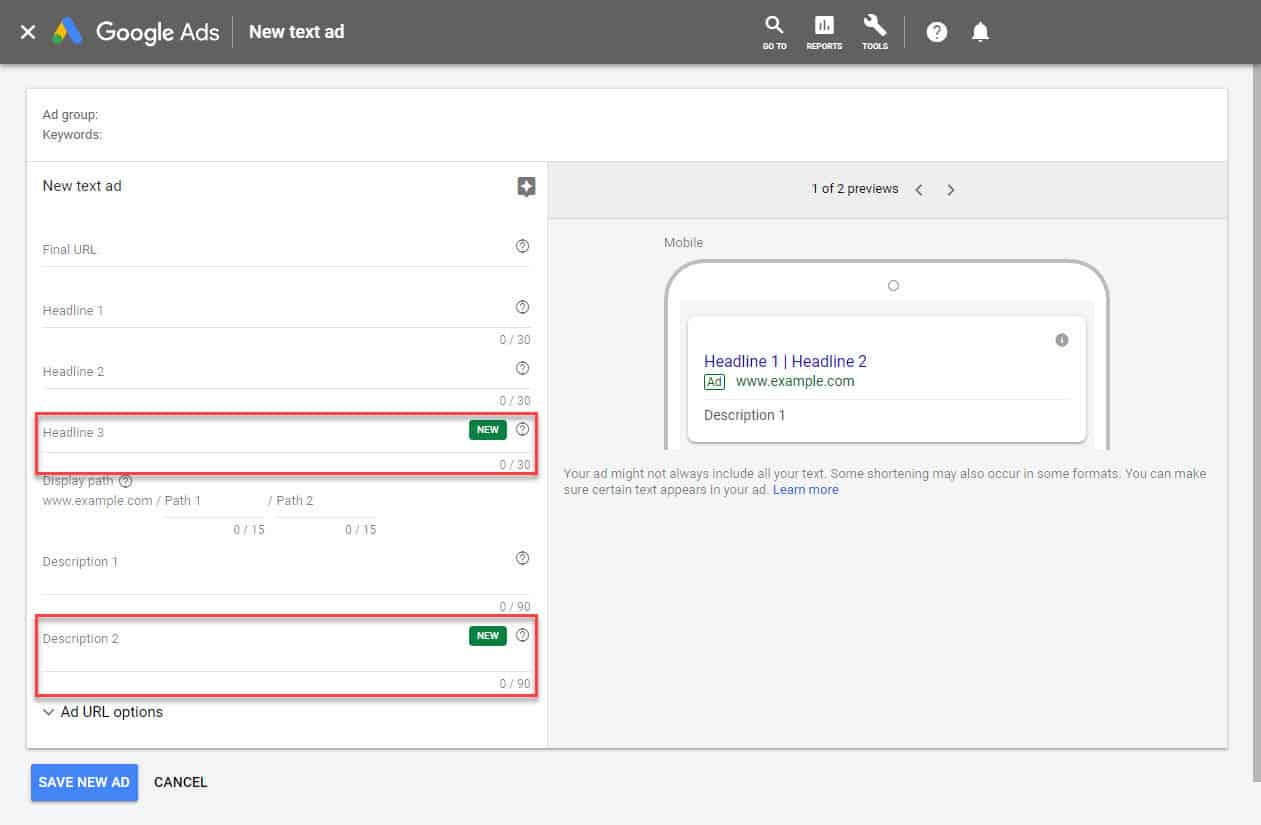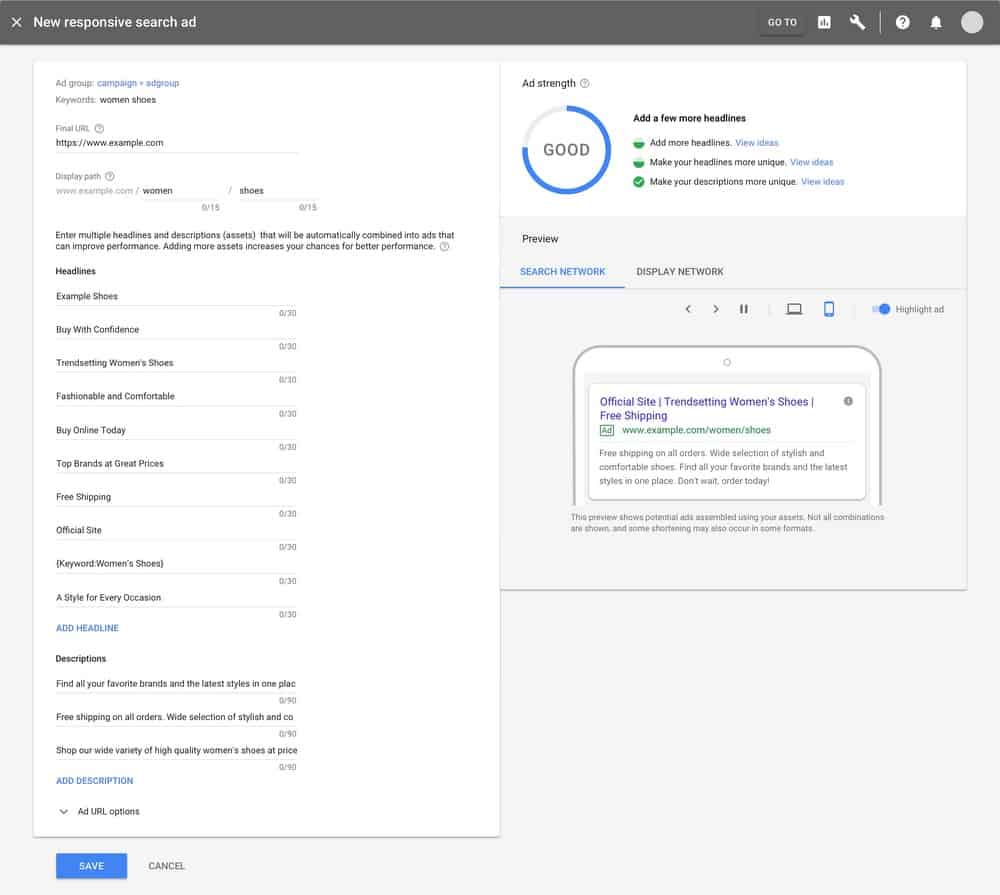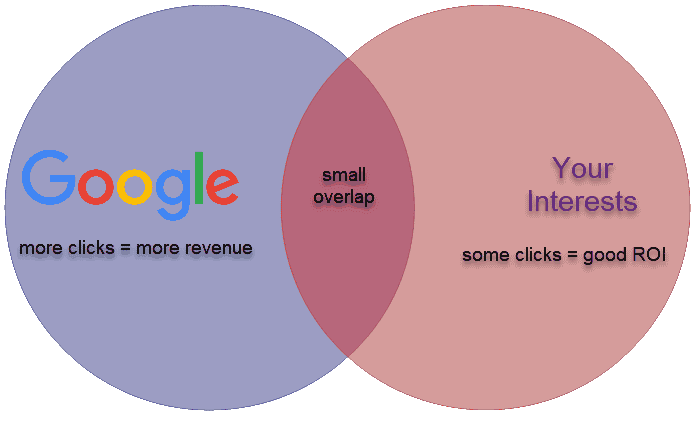Recently, there have been some massive changes over at Google, and I am not talking about how AdWords is now called Google Ads.
Nor am I talking about the new interface. Or the Google Ads support which has gone seriously downhill over the past few months.
I don’t have much hair on my head, but I do at times find myself pulling it out in frustration over various support cases.
What I’m talking about right now is the core to your Google Ads – the text ads themselves.
Google has introduced enormous changes to the text ad structure and how we might create them in the future.
Let’s start with the ad changes themselves.
If you’ve been using Google Ads for a few years now, you’ll already know that text ads have seen their fair share of changes.
Google switched the standard text ad over to the expanded text ad format. You might even have a few of these old standard text ads lingering around your account because they still perform so well.
The new expanded text ads were a reasonably welcome addition to Google Ads back in the day.
With them, you could add two long 30 character headlines, and one very long 80 character description line. A plethora of space to cram in all the text that you would ever need.
Now, Google allows you to have three headlines instead of just two. Google also added a second description line. Each of the description lines can now have a maximum of 90 characters instead of only 80.
Here’s what it looks like when you create these new text ads:
Sure, there is an occasional time when I need one or two more characters, but this is crazy.
The complexity when analyzing your ads performance will now increase enormously.
More importantly, the new headline 3 and description 2 won’t always get displayed and who’s to say that Google won’t swap them around. Maybe Google will swap headline 2 with headline 3 or description 1 with description 2. You won’t know this in any easily accessible way.
Understanding which bit of text in your ad works best will now be even more difficult.
You might be thinking, well Google knows best. Don’t think that way.
And just wait until you see the next new ad type coming to your Google Ads account.
You may or may not have access to this new feature yet, because it’s still in beta. Google recently mentioned it in their blog post.
Google is introducing a new ad type called responsive search ads, and it takes the original text ad format to a new extreme.
Here’s what one of these new ads looks like when creating them:
That’s right, to create one of these new ads, you need to feed it, at least 3 to 15 headlines.
Oh and then you have to shove in 2 to 4 descriptions that can each be 90 characters in length.
Then you sit back and let Google do their magic. Or should I say use their machine learning / AI to find the best possible combinations?
Wait just a minute; this isn’t good news!
You might be thinking, this is great. Ad creation should now be much easier. I could create one single responsive search ad and let Google find the best combinations for me. Google has so much data, and they know what’s best for me, right?
Wrong! That couldn’t be further from the truth.
Your goals are not the same as Google’s goals.
Google has a very different agenda when it comes to Google Ads.
For example, Google might see that your ads tend to receive clicks but people that do click, come right back to Google and click on one of your competitor’s ads. That’s Bad for you but great for Google.
Using Google’s infinite wisdom (or machine learning), their system might identify these types of opportunities and decide for you which ad combination works best for them.
Google will increase their revenue, and you will have a difficult time understanding that this is happening, because it’ll be hidden behind the mask of the machine.
Don’t get me wrong I’m a big fan of machine learning with some control and transparency. In this case, however, we are relinquishing control which is never a good thing.
You might be thinking, what about conversion tracking? Can’t I look at those numbers as my guide?
In case you hadn’t heard, Google Ads conversion tracking is not an accurate metric. It’s more like a highly inaccurate indicator.
When people arrive on your website, they may perform various types of meaningful actions. They might fill out a form, pick up the phone and call you to ask some questions, or maybe they download your software or even (gasp) make a purchase.
Now, let’s add to the mix a few devices, since we all don’t have a single computer. Your potential customer may have clicked on your ad using their phone only to fill out your form using their desktop computer. Sorry, but for the foreseeable future, conversion tracking won’t reliably work across devices.
And let’s not forget about multiple people who may be involved. Maybe you’re selling to businesses where one person clicks on your ad, and another person makes the purchase. Conversion tracking absolutely won’t work across people.
Your goals are not the same as Google’s.
Not only that, Google doesn’t even understand your goals.
Are you trying to improve your branding or maybe you’re experimenting with your messaging? Or perhaps testing an idea? These are different goals, and you will most likely gauge the resulting performance very differently.
Google simply can’t and won’t know the intricacies of your goals, and they absolutely don’t understand your business or customers as you do.
So in the spirit of optimism, I hope that responsive search ads are not the future for all ads.
As Google continue to take away control from advertisers, I recommend that you retain as much control whenever possible.
Always be aware of these type of changes to the Google Ads system and their potential ramifications on your account. Never give in to Google’s suggestions and always be skeptical.
You know what works best for you. Not Google!
Unique ideas for your business
The Demystifier puts practical ideas into your hands. You won't find them elsewhere. Original, actionable and insanely effective.





